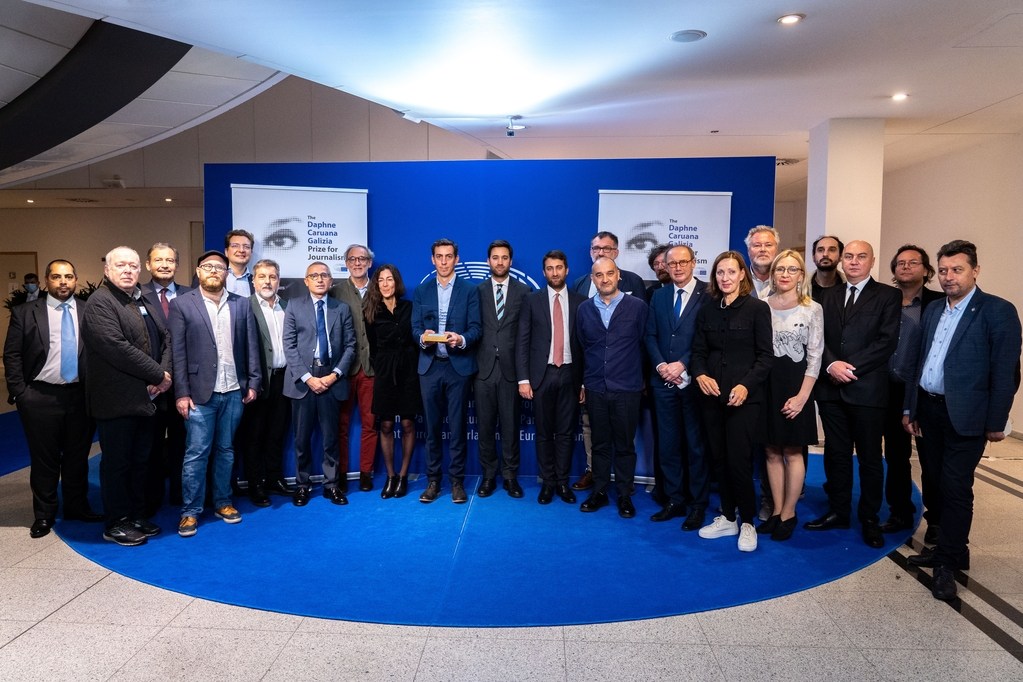The Daphne Caruana Prize for Journalism was awarded on Thursday to the journalists from the Pegasus Project coordinated by the Forbidden Stories Consortium.
The prize was initiated by the Parliament in December 2019 in memory of Daphne Caruana Galizia, a Maltese writer, blogger and anti-corruption activist, who reported on political events in Malta. In particular, she focused on investigative journalism, reporting on government corruption, allegations of money laundering and organized crime. She was killed in a car bomb explosion on 16 October 2017.
A public inquiry into her assassination found the state responsible for her death because it had failed to recognise the risks to the reporter's life and take steps to avoid them. An investigation implicated associates of the former Maltes Prime Minister who was forced to resign.
In February this year, one of three men accused of murdering Caruana Galizia pleaded guilty and was jailed for 15 years. The others are yet to go to trial.
The prize and the €20 000 prize money aim at demonstrating the Parliament’s support for investigative journalism and the importance of free press. It is opened to professional journalists and teams of professional journalists of any nationality to submit in-depth pieces that have been published or broadcast by media based in one of the 27 European Union member states.
More than 200 journalists submitted their media stories to an independent jury composed of representatives of the press and civil society from the 27 European member states and representatives of the main European Associations of Journalism.
“Daphne Caruana was an investigative journalist and blogger, who wanted to shed some light on things that other people wanted to keep hidden,” said Parliament President David Sassoli at the award ceremony. “From what we know about her job, she asked tough questions, and she also had the courage and the perseverance of keeping going and dig further, also when she was threatened."
Pegasus project
The first winner is the Pegasus project coordinated by the Forbidden Stories Consortium. It is a consortium of journalists whose mission is to continue the investigations of murdered, imprisoned or threatened journalists. With more than 30 partner news organizations around the world and nearly 100 journalists, the consortium relies on a network based on collaborative journalism.
The winning story disclosed a leak of more than 50,000 phone numbers selected for surveillance by customers of the Israeli cybersurveillance company NSO Group. The Forbidden Stories consortium and Amnesty International had access to records of phone numbers selected by its clients in more than 50 countries since 2016.
The company claims that its software is intended for use only by government intelligence and police to fight against organised crime and terrorism and that it is not responsible for any misuse by its clients for other purposes.
However, according to the Forbidden Stories Consortium, the leaked data showed that journalists, human rights defenders and politicians in among others India, Mexico, Hungary, Morocco and France had been targeted.
Israeli newspaper Haaretz was among the media organisations involved in the consortium and wrote extensively about the lenient export rules which enabled the spyware to be exported to authoritarian regimes with minimal control, as part of Israel’s foreign policy during the government of former prime minister Netanyahu. An inquiry is going on in Israel to tighten up the rules on export of sensitive equipment and software.
The Brussels Times

